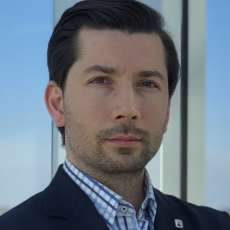FPPG (Oil&Gas Employers’ Federation) represents employers in the energy sector and is regulated by Law 62/2011 which deals with social dialogue. The organization oversees oil, gas, energy and energy mining since its inception in 1991.
Romania passed GEO 114/ 2018, as well as the offshore law last year – how balanced and sustainable would you say the regulatory framework is at the moment?
First of all, accessible and varied natural resources make Romania a highly attractive investment destination, as does its strategic geo-location and EU membership status. Regrettably, this is counterbalanced by a lack of cohesive and stable political agenda, that has yet to improve.
GEO 114 is an example of a measure taken without proper assessment and consultation with the industry. The reason quoted for GEO 114 is the protection of vulnerable consumers but in reality they are the ones who will suffer at the end of the three year period if the ordinance stands. The ministries do have several members with significant experience and understanding of the industry, but few decisions are actually taken after serious deliberation, or after commissioning impact studies. Hungary is a good counter example of a well managed regulatory framework, a country that profits significantly from trade and infrastructure despite producing a mere 15% of its energy consumption.
FPPG commissioned an impact study about the vulnerable consumer to proactively assess the situation and how to overcome issues surrounding energy poverty. The key findings of the Romanian Gas Market Report: How do we guarantee security and competitiveness of the sector is that the Romanian gas sector is not functional, its development towards a fair and balanced liberalized market is impeded by major hurdles that have been identified along the whole value chain from upstream to downstream and affect both the wholesale and retail gas markets.
Over the years the government has been collecting taxes from energy companies that were meant specifically to support vulnerable consumers, however they were never allocated for this purpose. Additionally, many of the people living in rural communities are not even gas users, preferring wood and other fossil fuels.
Under such challenging circumstances, what is the light at the end of the tunnel and what are organizations such as FFPG fighting to achieve?
At FPPG we are bullishly pursuing transparency and real dialogue between all stakeholders involved, and relaying why the industry concerns are relevant for everyone involved. It is important to support a liberalized market that will eventually benefit end consumers, the usual scapegoat of most industry-governments clashes.
The industry historically has been reactive rather than proactive, leaving them at the mercy of whatever the authorities decided, and at times making them look like “bad guy” in the eyes of the mass media. They need to take a stance and communicate more effectively, highlighting the advantages, and indeed necessities, that their businesses entail for every average citizen, from the clothes we wear to the warmth in our homes. In Romania specifically energy is a proud industry, with a 160 year old history and the first refinery in the world, an outsourcer of know how, talent and equipment. We should not let the world forget, and we should not ourselves forget. FPPG, for example, alongside other industry associations, is putting together a manifesto about the joint benefits the industry will bring to Romania in the coming decade. It is a real shame to allow miscommunication and lack of vision to create unnecessary obstacles. Details and numbers can always be negotiated and amended, but guiding principles are the motor that can drive us forward, and do so by engendering trust.
FPPG also started fostering new partnerships, for example with the Oil & Gas University (UPG) in Ploiesti, could you elaborate on what this consists of?
UPG prepares the next generation that joins, and then leads the industry. We are happy to be working together and started by organizing a few workshops and working to better prepare students for the real life work environment. The yearly curriculum is decided upon at a national level, but alongside the university we are thinking of organizing masters and other postgraduate classes, as well as internationalizing Romania’s academic environment.
What is your vision for the future and current take on Romania as an actor in the energy industry?
Romania’s potential remains appealing and the resources are there for the taking – we just need to be smart about how we fulfill this potential, not only to satisfy Romania’s domestic needs, but to become an exporting economy. The world is overflowing with competing products and services, but natural resources are still desired across the board. As for FPPG, our mission is to ensure a stable and transparent regulatory framework allowing for sustainable growth and the attraction of new investments.





